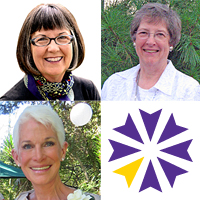 IBCLC Detailed Content Outline: Development and Nutrition Focused CERPs - Section I
IBCLC Detailed Content Outline: Development and Nutrition Focused CERPs - Section I
Access CERPs on Development and Nutrition for the IBCLC Detailed Content Outline recertification requirements. Enjoy convenient on-demand viewing of the latest Development and Nutrition focused IBCLC CERPs at your own pace.

It Is My Baby Too: Improving Fathers’ Experiences of Neonatal Care

Prof. (Dr.) Minesh Khashu M.B.B.S, MD, FRCPCH, FRSA, Q Fellow ( Health Foundation & NHS Improvement), Fellow England Centre for Practice Development Consultant Neonatologist, Poole Hospital NHS Foundation Trust & Prof. of Perinatal Health, Bournemouth University. Clinical Director, Maternity & Neonatal Care, Regional Strategic Clinical Network, NHS England, Wessex Dr. Khashu has received national and international recognition for his work especially in Quality Improvement, Necrotizing Enterocolitis and improving fathers experiences of neonatal care. Dr. Khashu is a clinical leader reimagining healthcare with a focus on system wide transformation, continuous Quality Improvement and Patient Centred Care. He has experience of clinical management and leadership at hospital, regional and national level including strategic change, system redesign, large scale quality improvement and development of national guidance and multi stakeholder collaboration. He has developed the DadPad Neonatal, a resource to support dads whose babies have been admitted to neonatal units. This has been very well received by parents, families, healthcare professionals and charities and nominated for multiple national awards. https://thedadpad.co.uk/neonatal/ He has also set up SIGNEC (special interest group for NEC) in the U.K. and developed a website for parents/families and health professiaonals which has been much appreciated. https://signec.org/ He convenes International Conferences on NEC in London regularly.
The presentation will cover current evidence of suboptimal practice in terms of fathers expereinces within maternity and neonatal services, our specific recommendations to improve practice and my development of DadPad Neonatal as a specific resource to improve experiences of fathers.
We have reviewed the literature on engaging fathers in neonatal units, with the aim of making recommendations for improving experience of fathers as well as health outcomes in neonatal practice. Fathers typically describe the opportunity to bond with their babies in glowing terms of gratitude, happiness and love. These experiences are underpinned by hormonal and neurobiological changes. We find that engagement with fathers remains sub-optimal. Fathers, also, are subject to different social expectations from mothers, which shapes how they respond to the situation and how neonatal staff treats them.
We have put forth 3 core principles and 12 practical recommendations for neonatal teams to focus on.

View Details / Enroll
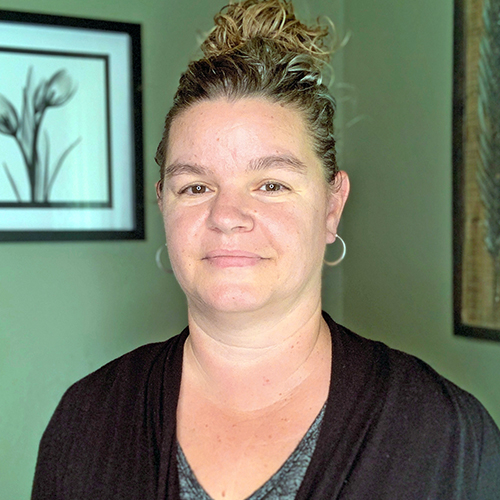
Lactation Skills for Supporting Dyads with Oral Restrictions

Christine Staricka is a Registered, International Board-Certified Lactation Consultant and trained childbirth educator. As the host of The Lactation Training Lab Podcast, her current role focuses on training and coaching current and aspiring lactation care providers. Christine created and developed The First 100 Hours© concept, an early lactation framework designed to support lactation care providers with the knowledge and mindset they need to help families optimize early lactation. Christine worked as a hospital-based IBCLC for 10 years and has over 20 years experience providing clinical lactation care and support. She provides clinical lactation care to families at Baby Café Bakersfield and serves as its Director. Christine recently completed 6 years of service on the Board of the United States Lactation Consultant Association (USLCA.) She holds a Bachelor's Degree from the University of Phoenix. She has been married for 27 years, lives in California, and is the proud mother of 3 amazing daughters.
Topic: Tongue-Tied and Troubled: A Breastfeeding Journey at Risk - [View Abstract]
Topic: Your Responsibility to the WHO Code: Evaluating Real-World Scenarios for Compliance - [View Abstract]
A growing body of work supports the lactation care provider in assessing, referring, and infant feeding after a revision of oral restrictions; far less has been said regarding ongoing lactation care when revision is not part of the plan in the short- or long-term. Whether because revision services are unavailable, inaccessible, or not desired by parents, the dyad that includes a baby with non-revised oral restrictions will require a customized plan to avoid problems of lactation related to infants with oral restrictions. This presentation will equip the lactation care provider with tools to support the identified population of dyads where the infant has or is suspected to have oral restrictions. (These tools shall include: a review of situations which might lead a dyad to be considered part of this specific population; a comprehensive understanding of the categories of potential problems of lactation associated with this population; and the creation of a lactation care plan with clinical skills specifically designed to consider and address the needs of a dyad in this population along the entire spectrum of normal lactation.) Lactation care providers in any setting and with any level of training will benefit from this review of the issue as it offers a deeper understanding of why particular tools, techniques, and routines might be required for this population as compared with other populations of dyads.


Barbara Wilson-Clay became a La Leche League Leader in 1982. She certified as an IBCLC and entered private practice in Austin, Texas in 1987. Barbara was named a Fellow of the International Lactation Consultant Association in 2008. She recently retired from her practice, which specialized in difficult breastfeeding situations. With a client load of 400-450 visits yearly, Barbara garnered a wealth of clinical and counseling experience and a trove of clinical teaching photos. In partnership with Kay Hoover, she created The Breastfeeding Atlas, which was translated into Chinese in 2019 by Fudan University Press. A Korean translation will be published in September 2020.
Barbara has been a citizen advocate for breastfeeding in the Texas legislature and helped pass a landmark law protecting breastfeeding rights. She is one of the co-founders of the non-profit Mothers Milk Bank at Austin, and retired as Vice President of the Board of Directors in 2010. She continues to serve on the Advisory Board. Barbara's research and commentaries have appeared in the Journal of Human Lactation, Archives of Disease in Childhood, the International Breastfeeding Journal, and others. She has served on various editorial review boards and contributed chapters to several lactation textbooks.
Topic: Looking Both Ways: Taking Wisdom from the Past Into the Future - [View Abstract]
Topic: Looking Closely at The Baby - [View Abstract]
Topic: Maternal & Infant Assessment for Breastfeeding: Essential Concepts for Midwives - [View Abstract]
Clinical management of the breastfeeding mother and infant begins with accurate assessment of the issues that are affecting normal function. While breastfeeding is a dyadic activity, this presentation focuses on the infant. Specifically, the learner is invited to look closely at the individual baby, to observe facial tone and structure, and to identify any anomalies or restrictions in range-of-motion (such as those resulting from torticollis) that may negatively impact ability to breastfeed. Videos and photos will demonstrate both normal and abnormal presentations. Interventions will be proposed to assist infants who are unable to breastfeed so that they may continue to receive human milk, ideally from their own mothers, with an eventual goal of breastfeeding, if possible.
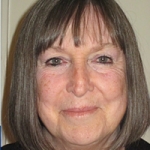

Pamela Morrison has worked with breastfeeding mothers and babies for 30 years. She served as a La Leche League Leader in Harare, Zimbabwe from 1987 before certifying as the first IBCLC in the country in 1990. She worked in private practice until 2003, before moving to Australia and then to England. She served for many years on the Zimbabwean National Breastfeeding Committee and on the BFHI Task Force. She has subsequently served as Co-coordinator of the WABA Task Forces on Infants Nutrition Rights and on Breastfeeding and HIV. Pamela continues to write and speak for the preservation and protection of breastfeeding in challenging situations.
In biological terms, successful breastfeeding demands that the baby survives and thrives on his mother’s milk. “Not-enough-milk” (either real or perceived) has long been recognized as the most common reason why mothers abandon breastfeeding. Ways to identify for the mother whether a baby is “getting enough” are discussed. The causes of inadequate breastmilk intake include physiological/anatomical conditions in mother/baby, poor lactation management or other more obscure causes. While planning interventions to enhance breastmilk production and improve infant intake, it is important to protect the baby’s nutritional status. Simultaneously implementing strategies to increase the mothers’ breastmilk supply while caring for a high-need baby can be immensely challenging. Each client will need constant support, reassurance and re-evaluation. Turning such a difficulty around, with the goal of eventually returning to exclusive breastfeeding, can be one of the most fulfilling and rewarding situations that an IBCLC can work with.

Maternal & Infant Assessment for Breastfeeding: Essential Concepts for Midwives

Barbara Wilson-Clay became a La Leche League Leader in 1982. She certified as an IBCLC and entered private practice in Austin, Texas in 1987. Barbara was named a Fellow of the International Lactation Consultant Association in 2008. She recently retired from her practice, which specialized in difficult breastfeeding situations. With a client load of 400-450 visits yearly, Barbara garnered a wealth of clinical and counseling experience and a trove of clinical teaching photos. In partnership with Kay Hoover, she created The Breastfeeding Atlas, which was translated into Chinese in 2019 by Fudan University Press. A Korean translation will be published in September 2020.
Barbara has been a citizen advocate for breastfeeding in the Texas legislature and helped pass a landmark law protecting breastfeeding rights. She is one of the co-founders of the non-profit Mothers Milk Bank at Austin, and retired as Vice President of the Board of Directors in 2010. She continues to serve on the Advisory Board. Barbara's research and commentaries have appeared in the Journal of Human Lactation, Archives of Disease in Childhood, the International Breastfeeding Journal, and others. She has served on various editorial review boards and contributed chapters to several lactation textbooks.
Topic: Looking Both Ways: Taking Wisdom from the Past Into the Future - [View Abstract]
Topic: Looking Closely at The Baby - [View Abstract]
Topic: Maternal & Infant Assessment for Breastfeeding: Essential Concepts for Midwives - [View Abstract]
Infants born at term following an uneventful birth generally require no breastfeeding interventions aside from a supportive environment. However, even in populations of women who are well-motivated to breastfeed, fully one third of infants demonstrate sub-optimal breastfeeding behavior in the first week postpartum. Risk factors have been identified that predict which mother-infant pairs may require extra assistance to protect the option to fully breastfeed once conditions stabilize. Careful assessment of the dyad helps identify who will need the most help. Such assessment is necessary to protect the infant from excessive weight loss and, because the calibration of milk supply is a time-sensitive event, serves to protect the potential for a full milk supply. Midwives must be familiar with new research that recommends that, in the presence of risk factors, milk expression should begin in the first hour after birth, with expressed colostrum being delivered to the infant by spoon or cup.
View Details / Enroll
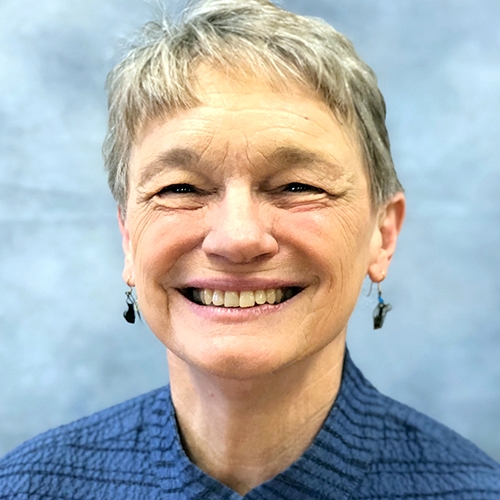
Midwives Hold a Key: Opening Doors to Early Parenting and Breastfeeding Success

An inspiring international teacher and published author, Jan Tedder is a nurse practitioner and lactation consultant who was honored as the NC Maternal-Child Nurse of the Year and the recipient of the American Nurses Association’s 2020 Innovative Nurse Award. Jan worked in primary care for decades and trained nurses and physician residents in well-child care and lactation support. She developed HUG Your Baby, an international education program to help parents and the professionals who serve them, understand a child’s behavior and help mothers meet their breastfeeding goals. Available in six languages, her work has been accessed by thousands of professionals around the world used in 50 countries and tribal nations.
Research confirms that misunderstanding a baby’s behavior decreases breastfeeding duration, lowers parent confidence and increases stress and postpartum depression. Literature on “Responsive Parenting” confirms how learning to notice, understand and respond appropriately to a baby’s behavior positively impacts early parenting, breastfeeding duration and the growth and development of a baby. Midwives are uniquely positioned to enhance a family’s ability to meet their parenting and breastfeeding goals. However, other research suggest that information provided patients does not always meet the needs of today’s young families. This presentation reviews efficient, cost-effective tools, tips and techniques that foster “Responsive Parenting”, boost the confidence of new parents and help families meet their breastfeeding goals.

View Details / Enroll
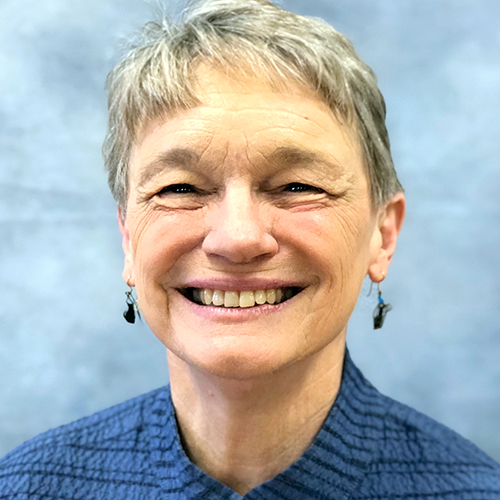
View Details / Enroll

Milk Composition and Maternal Nutrition: Understanding the Impact and Outcomes

Rosa Sorribas is an IBCLC in private practice in Barcelona since 2008. She is a Computer Engineer working on Internet and databases since 1986. In 2002, after her first daughter was born, she and her husband created CrianzaNatural.com, a Spanish portal and forum with information for an attachment parenting style of life. Since then, she's been involved in breastfeeding groups, such as La Leche League and Areola, which she still collaborates with. She offers breastfeeding and babywearing education in Spain, Portugal, Poland, and online. She's been working as doula in home and hospital births. Her website has been the source of dozens of support groups, many breastfeeding conselours and IBCLCs, and has helped hundreds of thousands of families around the world to get their maternity goals. For the last few years she's been very focused in nutrition after a cancer treatment left some issues on her health. She is now running a weekly podcast and video interview to relevant people addressing topics from conception to teens. In February she will launch a training course to become IBCLC, with the help of several new and experienced IBCLCs that she's been mentoring, in a site called ecrianza.com. She lives near the beach of Castelldefels with her two daughters who were homeschooled for 6 years, her lovely husband and her dog Timi.
As opposed to being considered the optimal way to feed a baby, breastfeeding should instead be considered the norm. Human milk is the most appropriate food for all babies, even if the mother is experiencing health issues or challenging life conditions. Human milk, despite maternal conditions, is the best source of food for children. Lifestyle, maternal diet, environmental exposures, and stress, among other factors, can impact health outcomes. This leads to the question of whether these factors can also affect human milk composition. Can babies become nutritionally deficient from the composition of their mother’s milk? What is deficiency? How are those thresholds calculated? This presentation will shed light on this subject, which is undergoing a tremendous amount of new research.

View Details / Enroll
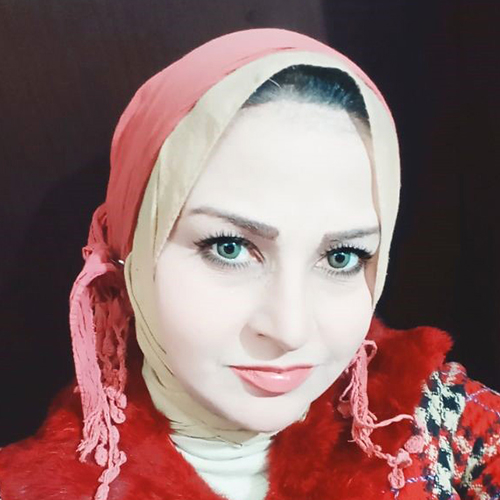
Misconceptions and Current Research on Vegan Diets and Breastfeeding

Pediatrician, neonatology & Clinical Nutrition physician with 19 years’ experience, and IBCLC since 2008. A board member @MILCC. An Associate Alumni, Harvard Medical School & affiliate member @WABA and member @Task force analysis committee@IBLCE.
A volunteer@ILCA (conference committee, equity, study, research and publications and webinar task modules) since 2018 and currently.
A trainer at the Egyptian Board of Pediatrics and a former member committee of the Egyptian Board.
In July 2022, she was nominated for USLCA award winner reward, assigned for excellency in breastfeeding medicine. Among USBC Equity champions 2023.
An “IBCLC & ILCA Award Winner” 2021, award to the most effective lactation consultant worldwide.
In December 2021, she was selected as one of four leaders responsible for the Technical Assistance @ United States Breastfeeding Committee, responsible for training and technical assistance to the breastfeeding network of the state.
She has been selected on 2018 as an expert on the IBLCE® Practice Analysis Task Force. She was nominated as a fellow of ILCA the year 2021.
Her current book “The Ultimate Breastfeeding Study Guide” was released in January 2021, a reference book for healthcare professionals interested in Breastfeeding medicine.
An international speaker at organizations supporting breastfeeding medicine; TalkTools, ABM, ILCA, iLactation, USLCA, Breastfeeding conferences, Australian Live Events and Appalachian Breastfeeding Network webinar series.
The nutritional composition of breast milk is impacted by maternal diet. With vegan breastfeeding mothers, a common concern is that their dietary restrictions could affect their milk supply or limit the milk constituents. Research however shows that vegan mothers are capable of producing nutritionally valuable milk for their infants, as long as the appropriate supplementation of the mother's nutritional requirements is provided. This presentation will review existing knowledge on the variability of specific nutrients in breastmilk of mothers adhering to a plant-based diet and how to create a plan that takes into account both the mother's and infant's nutritional requirements.
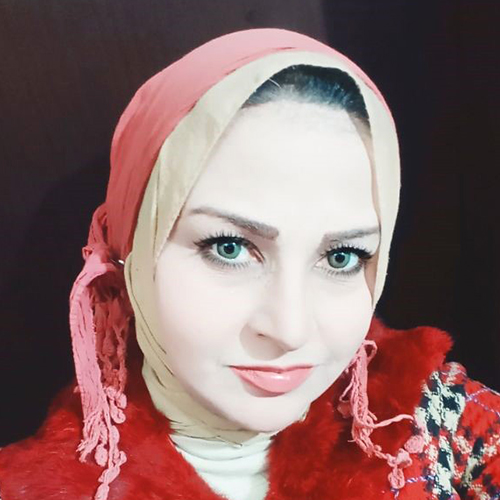
View Details / Enroll
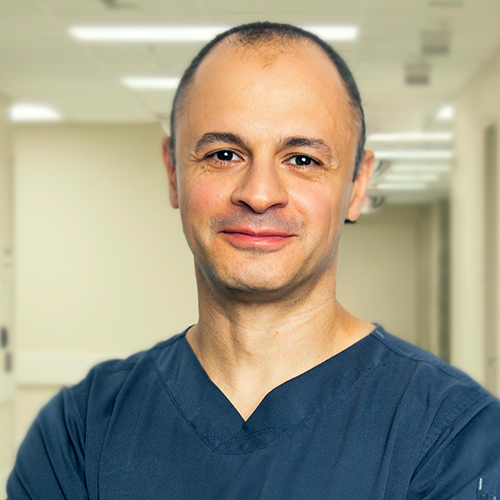
Mother's Own Milk Versus Donor Human Milk in the NICU: Practical Recommendations for Individualized Care

Prof EL-Khuffash is a Consultant Neonatologist and Paediatrician. He is a qualified International Board Certified Lactation Consultant. His two primary clinical and research areas of expertise are heart function in neonates and the promotion of breast feeding, and breast feeding support, to new mothers. He also has extensive expertise in general feeding issues encountered by babies over the first few months.
Prof EL-Khuffash sees families for prenatal breast feeding and fetal anomaly consultations and postnatal infant assessment, 2 and 6 week checks, and breastfeeding/general support including early irritability and reflux in his consultation rooms in the Rotunda Private Clinic.
Prof EL-Khuffash has considerable knowledge of breast feeding medicine and experience in providing antenatal and postnatal breast feeding advice and support to new mothers. This includes identifying and addressing challenges to breastfeeding in both the mother and the baby. He also specialises in general feeding difficulties and early feeding issues encountered by babies.
Prof EL-Khuffash graduated from Trinity College, Dublin in 2002 and enrolled in the Royal College of Physicians of Ireland paediatric specialist training scheme in 2005. He completed a Doctor of Medicine (MD) degree in University College, Dublin in 2008 and his neonatal specialty training in Toronto, Canada (2009-2011). Following this, he was appointed as a consultant Neonatologist and Assistant Professor of Paediatrics at the University of Toronto in January of 2011. He obtained a diploma in clinical epidemiology during his time in Toronto. He is the recipient of several national and international research awards, with international peer reviewed publications and keynote presentations and the lead for cardiovascular research, supervising several post graduate PhD candidates.
Topic: Mother's Own Milk Versus Donor Human Milk in the NICU: Practical Recommendations for Individualized Care - [View Abstract]
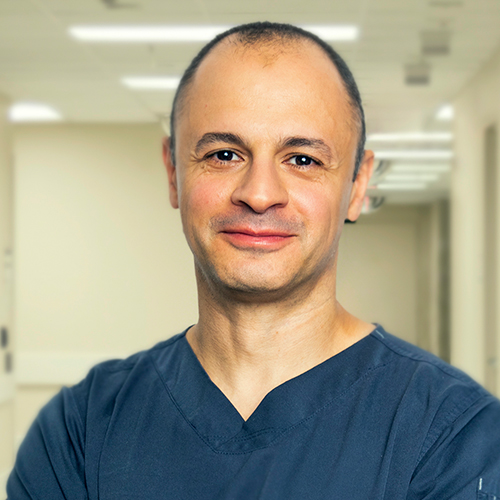
View Details / Enroll
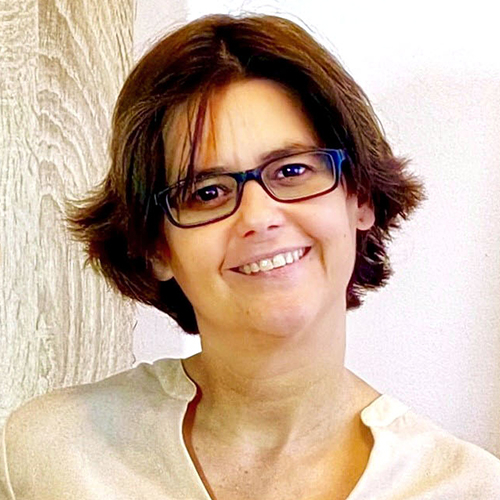
Movement: The Brain's Power Boost for Learning

Carlota López-Peredo has a Bachelor’s degree in Biochemistry and Special Needs Education from Madrid Complutense University. She is an inspirational trainer, the owner of a clinic in Madrid, and the Program Liaison for Breakthroughs International. As a certified International Faculty for both the Brain Gym® and Movement Based Learning programs, Carlota provides experiential training worldwide for educators, families, caregivers, developmental specialists, and others, providing a large range of tools focusing on early intervention, developmental delays and disorders, as well as learning disabilities.
After working in the classroom for five years, she opened a clinic for developmental delays and learning difficulties. At her clinic, parents appreciate her commitment, connection with the children and professionalism. In her classes, her students enjoy the passion she communicates when teaching, and her ability to make learning a fun process. Carlota's passion is helping families and educators using designed movements to enhance the individual developmental foundation and reach a higher functioning level.
This talk will focus on the Movement Based Learning (MBL) program and how it can be used by healthcare professionals, as well as families, to support a healthy and efficient early childhood development. The MBL designed movements can be used as an effective tool to help develop motor, cognitive, and emotional skills in children, supporting them to successfully navigate through the developmental milestones. Practical MBL tools will be shared with the participants that can be implemented in the children's daily lives to help them reach their full potential.




